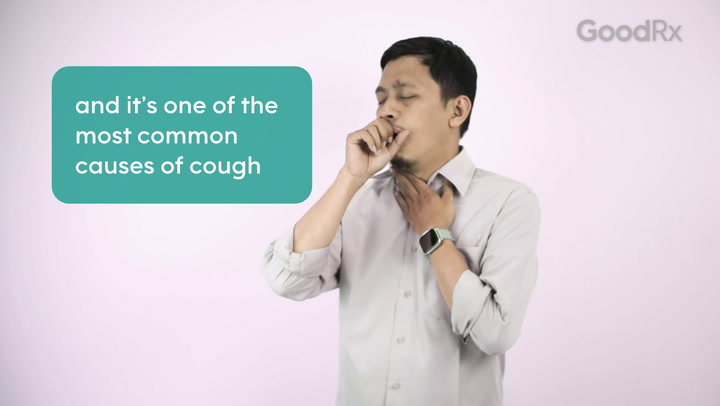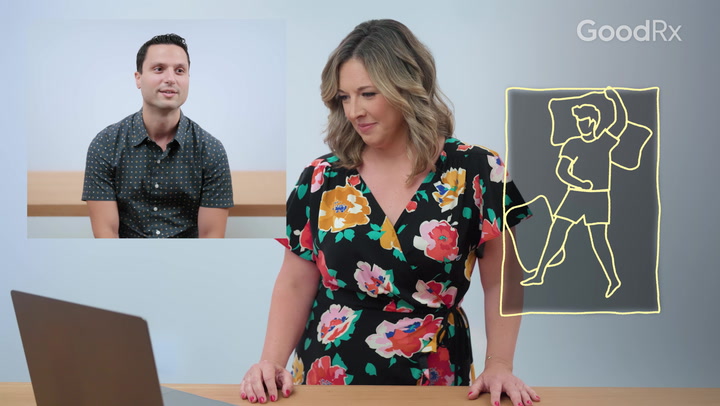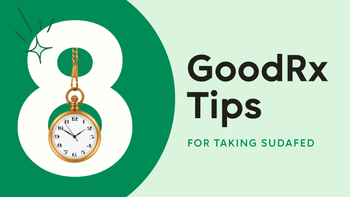
What’s the Best Antibiotic for a Sinus Infection?
Key takeaways:
In most cases, sinus infections are viral — not bacterial — infections. So, antibiotics, like Z-Pak, aren’t necessary to treat them.
There’s no treatment for viral sinus infections. But you can manage symptoms with over-the-counter medications and simple at-home remedies.
When healthcare professionals recommend an antibiotic to treat a sinus infection, amoxicillin is usually the first choice.
If you’ve got a sinus infection, you probably want to get rid of it fast. And you may have heard that a Z-Pak can knock it out. But not so fast: A Z-Pak usually isn’t your best option. That’s because most sinus infections are caused by a virus, not bacteria. So, taking antibiotics, like a Z-Pak, won’t help. And, in cases when an antibiotic is recommended for a sinus infection, other medications are typically preferred.
Let’s take a closer look at when you should use a Z-Pak, and what’s the best antibiotic for a sinus infection.
What are the best antibiotics for a sinus infection?
The antibiotic that’s best for your bacterial sinus infection will depend on your medication allergies and how severe your symptoms are. Your primary care provider can work with you to develop the best treatment plan for your symptoms.
Search and compare options
If your primary care provider thinks you need antibiotics to treat your sinus infection, they’ll likely have you start with amoxicillin for up to 10 days. It’s the best choice for most people because it works well and tends to be more affordable than other options.
Here are other good choices for antibiotics to treat a sinus infection.
Amoxicillin with clavulanate (Augmentin)
Amoxicillin with clavulanate (Augmentin) is a penicillin-like antibiotic. The clavulanate protects amoxicillin from being broken down by bacteria. That’s why it’s sometimes recommended over amoxicillin alone. This antibiotic can treat many types of bacterial infections, including urinary tract infections (UTI), sinus infections, and ear infections.
Doxycycline
Doxycycline is a tetracycline antibiotic that can be a good alternative to amoxicillin for people who are allergic to penicillin. Beyond sinus infections, it’s used to treat many conditions, including acne, chlamydia, and UTIs.
Cefixime
Cefixime (Suprax) is a cephalosporin antibiotic that may be used in people who are allergic to penicillin. It can treat many different types of bacterial infections, including sinus infections. But it costs more than other similar antibiotics and tends to cause diarrhea and stomach upset. So, it isn’t the go-to option.
Fluoroquinolones, like levofloxacin and moxifloxacin
Fluoroquinolones are another class of antibiotics that are suitable for people who are allergic to penicillin. Suitable options to treat sinus infections include levofloxacin and moxifloxacin.
Do sinus infections go away on their own? Yes, they often do. But it takes some time. Here’s how to relieve sinus symptoms in the meantime.
Foods for a sinus infection: Though food won’t cure your sinus infection, what you eat can help you feel better. Here are the best options.
When is a sinus infection serious? Here’s when to visit your doctor’s office to get treatment for a sinus infection.
What is a Z-Pak, and what is it used to treat?
The Z-Pak is a 5-day course of azithromycin (Zithromax), an antibiotic. It’s used to treat certain bacterial infections, including some sinus infections and upper respiratory tract infections that lead to:
Congestion
Runny noses
When is a Z-Pak good for a sinus infection?
Most sinus infections are viral (and not bacterial), so an antibiotic prescription, like a Z-Pak, won’t actually help. And, even if a healthcare professional determines that you need an antibiotic for your sinus infection, it probably won’t be a Z-Pak.
The Z-Pak used to be a go-to prescription for sinus infections because it’s easy to use. But, over time, many of the bacteria that cause sinus infections have become resistant to azithromycin. As a result, there’s a good high chance that a Z-Pak won’t cure your sinus infection, even if it’s caused by bacteria.
What are the side effects of a Z-Pak?
Z-Pak side effects are usually gastrointestinal, including:
Nausea
Stomach pain
Constipation
Serious side effects — like allergic reactions, liver problems, and dizziness — are rare. But Z-Pak use has been linked to serious heart conditions, like arrhythmias (irregular heartbeat) and increased cardiac deaths.
How do you treat sinus infections without using antibiotics?
Treating a sinus infection comes down to whether it’s viral or bacterial. If it’s viral, antibiotics, like the Z-Pak, won’t work to treat it. In fact, viral sinus infections have no cure.
Treatment for viral sinus infections aims to manage symptoms and includes:
Getting plenty of rest
Drinking lots of fluids
Inhaling steam from a vaporizer or shower to help you breathe easier
Using zinc lozenges, which can shorten and lessen the severity of a cold, if you take them in the first 24 hours of getting symptoms
Taking pain medications, like acetaminophen (Tylenol) or ibuprofen (Advil), to help with fever, muscle aches, and throat pain
Using decongestants, like loratadine / pseudoephedrine (Claritin-D) or pseudoephedrine (Sudafed), to relieve sinus congestion and runny nose
Using nasal sprays, like fluticasone, to help with inflammation and congestion
Your primary care provider can help you figure out if your sinus infection is viral or bacterial based on your symptoms and how long you’ve been sick.
When should I see a doctor for a sinus infection?
You don’t always have to see a healthcare professional for a sinus infection. But, if your symptoms don’t get better after about 7 days, they’re more likely to prescribe an antibiotic.
Keep in mind that it’s common to feel lousy for several days with a sinus infection. After all, your body is working hard to fight off the infection. You might experience:
Runny nose
Sneezing
Nasal congestion
Sore throat
Cough
Fatigue
Some people also experience a low-grade fever. Most people begin to feel better within a week, but symptoms can last up to 2 weeks. And a cough can linger for a week after that.
Get medical attention for a sinus infection if you develop any of these symptoms:
A temperature above 101°F
A fever that lasts longer than 2 days
Severe or persistent headache, ear pain, sinus pain, or chest pain
Wheezing
A prolonged or bloody cough
The bottom line
Most sinus infections are caused by a virus, not bacteria. That means antibiotics aren’t necessary, and they can actually do more harm than good. But, if your symptoms continue for over a week, contact your primary care provider. If they recommend an antibiotic, amoxicillin is usually at the top of the list.
Why trust our experts?



References
DeBoer, D. L., et al. (2023). Acute sinusitis. StatPearls.
Rosenfeld, R. M., et al. (2015). Clinical practice guideline (update): Adult sinusitis. Otolaryngology—Head and Neck Surgery.
Zaroff, J. G., et al. (2020). Association of azithromycin use with cardiovascular mortality. JAMA.

























